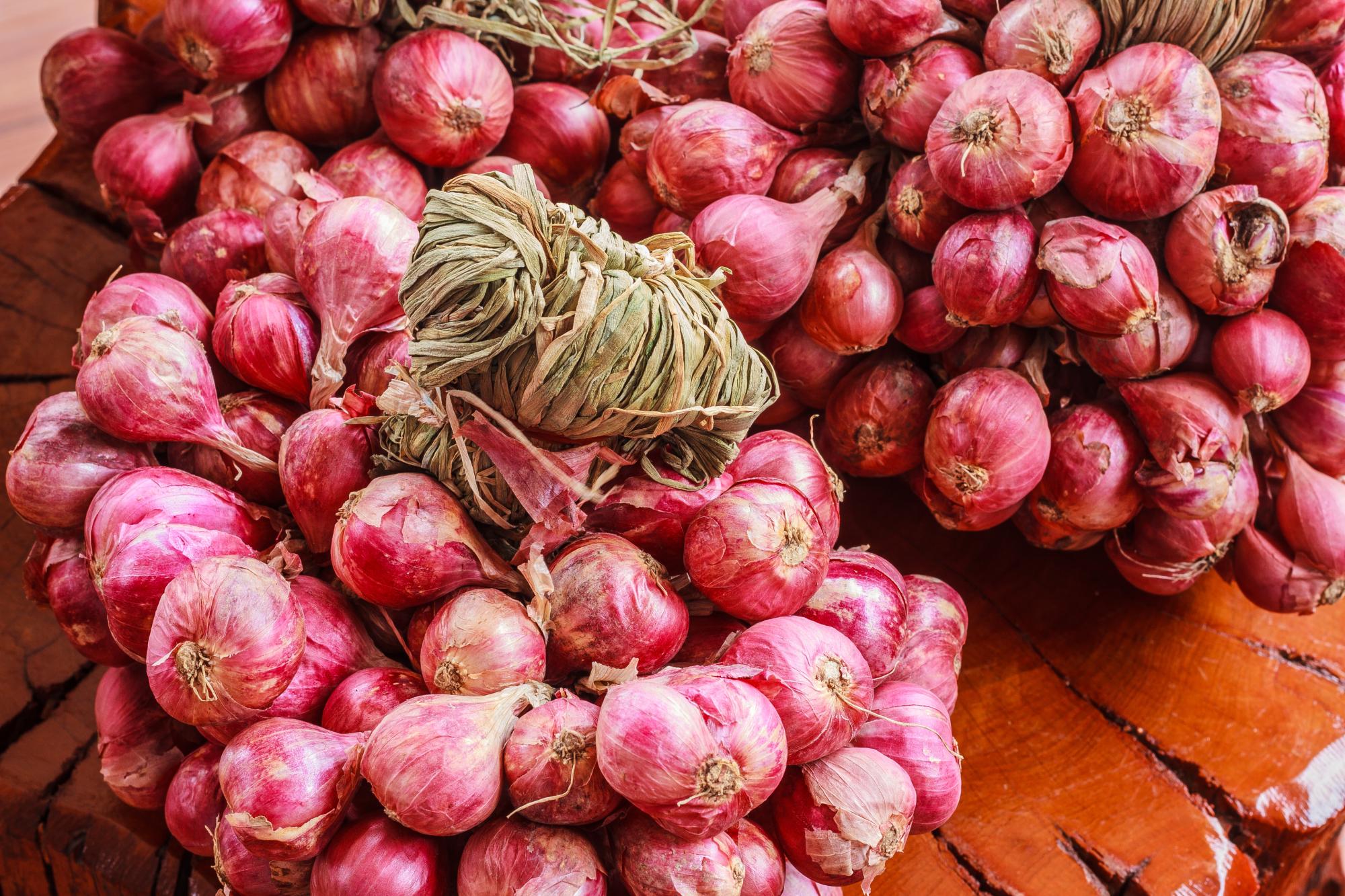Onion: Info, Nutritional Value, and Health Benefits

This post is also available in:
This post is also available in:
![]() हिन्दी (Hindi)
हिन्दी (Hindi) ![]() Ελληνικά (Greek)
Ελληνικά (Greek) ![]() Português (Portuguese (Brazil))
Português (Portuguese (Brazil))
Onion Information
Onions are one of the most commonly consumed and cultivated vegetables globally. While the onion is a biennial (or perennial) plant in nature, farmers treat it as an annual crop. The leaves and bulbs of the plant are edible, can be consumed either raw or cooked, and are key ingredients in many recipes. Almost all the parts of the plant contain essential oils, with Allyl propyl disulfide as their main representative and the reason we cry when we chop an onion.
Although the wild ancestor of the onion is unknown, scientists consider that the region around Afghanistan or Central Asia is the center of origin of the species. The plant has been cultivated and consumed for over 4,000 years. Onions are also grown in the countries around the Mediterranean since the ancient years. It has been recorded by ancient Greeks like Homer, Hippocrates, and Theophrastus, which mainly referred to it for its medical uses. Ancient Egyptians thought they had already included onions as a key element of their diet since 3200 BC. Onions were very popular among Europeans during the Middle Ages, while in America, they arrived later with Christopher Columbus around 1500.
Nowadays, onions are cultivated almost everywhere in the world, with China being the leading producer country with over 22 thousand tons of onions annually. India, Egypt, Turkey, Japan, the U.S.A, and Russia are other onion-producing countries.
Onion varieties are mainly categorized based on 4 main characteristics.
- The requirement of daylenght to produce bulbs (short-day, intermediate and long-day varieties)
- Their shape. We have round, flat, or globe onion bulbs
- Their flavor. We have sweet or spicy varieties
- Their color. We have onions with white, yellow, brown, or red coloring
Onion Nutritional Value
Keep in mind that one cup of chopped onions weigh approximately 160g.
Based on USDA data, 100gr of raw onion contain:
- Calories 40 kcal
- Water: 89.1g
- Total Sugars: 4.24 g
- Total Carbohydrate 9.34 g
- Total Fat 0
- Cholesterol 0
- Dietary Fiber 1.7 g
- Protein 1.1 g
- Vitamin C 7.4 mg
- Vitamin B6 0.12 mg
- Folate 19 μg
- Calcium 23 mg
- Iron 0.21mg
- Magnesium 10 mg
- Phosphorus 29 mg
- Potassium 146 mg
Health Benefits of Onion
Consumption of onions has been found to:
- Have Anticancer and Antimicrobial actions
- Boosts bone health
- Boost skin and hair health
- Improve the Mood
Anticancer and Antimicrobial action
Anticancer and Antimicrobial properties of onions and other allium vegetables have been studied extensively. Based on research results, the aqueous and ethanolic extracts from onions have high phenolic content (that act as antimicrobials and antioxidants). The onion bulbs are rich in flavonoids (more than 25 different compounds) and, when consumed regularly, can rescue the risk of cancer and diabetes.
Skin and Hair
Onions are a source of vitamin C . Vitamin C participates in collagen building which is responsible for the good health and structure of our skin and hair.
Mood
According to studies, Homocysteine found in onions participates in the production of euphoria hormones such as serotonin, norepinephrine, and dopamine, causing people with bad mood or depression symptoms to feel better.
Improve Bone density
Based on scientific evidence, onion consumption from women at the pro-or menopause stage improved their bone mineral density and caused a 20% reduction in fractures.
Onions can also be used as homeopathic therapy for all food-producing animals. A commonly used dose is 10 ml per animal. However, such treatments should not be applied without first consulting a doctor or a veterinarian.
Further Reading
Interesting facts about onions
References
- https://www.google.com/
- https://academics.hamilton.edu/foodforthought/our_research_files/allium.pdf
- https://extension.uga.edu/publications/detail.html?number=B1198&title=onion-production-guide
- https://www.ema.europa.eu/en/documents/
- https://bnrc.springeropen.com/articles/10.1186/s42269-022-00908-8
- https://pubmed.ncbi.nlm.nih.gov/17997520/
- https://pubmed.ncbi.nlm.nih.gov/19240657/
- https://pubmed.ncbi.nlm.nih.gov/26686359/
- https://pubmed.ncbi.nlm.nih.gov/29567221/









































































